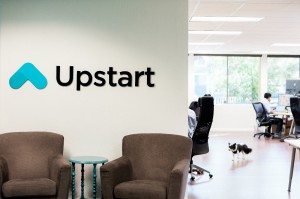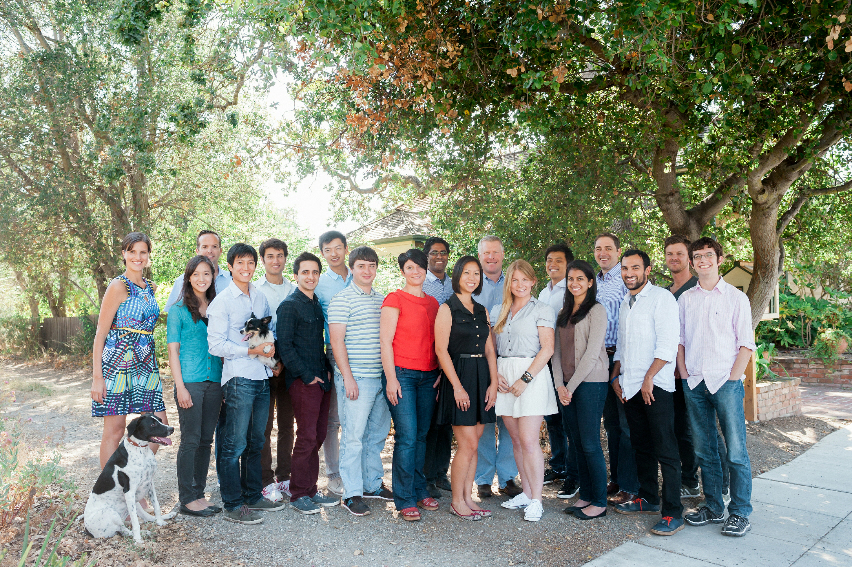
Being young can be inexpensive if you choose to live out of your parent’s basement with little aspiration of improving yourself or going anywhere in life. If you desire to pursue an education, start a business, or go after your dreams in general, it’s usually going to take money to get there. The problem with being young and needing money is that no one wants to give it to you. Where do most Millennials turn? Credit cards.
“About 50% of the population in America have credit card balances that rollover month to month,” said Paul Gu, young entrepreneur and co-founder of Upstart. Even after building up minimal credit using credit cards, banks are hesitant to issue loans, which would allow for refinancing credit cards at a lower rate. As of mid-2013, there was $850 billion in outstanding credit card debt in the US.
School is the largest expense for many young go-getters. For example, the cost of attending Yale is over $60,000 a year including room and board. Yale happens to be the former school of Paul Gu, but he didn’t graduate, and it wasn’t because of the direct cost. Paul Gu wasn’t the first person to drop out of Yale with three years’ worth of credits, but he was the first to drop out of Yale to become a member of the Thiel Fellowship in the 20 Under 20 Program, where he received a $100,000 grant to pursue entrepreneurship.
Paul, who specializes in statistics and finance, began experimenting with data to see if he could build a model to predict an individual’s future income. While working on the first version of the model that is now used for Upstart, Paul met co-founders Dave Girouard and Anna M. Counselman through friends. “We were all excited about getting young people access to capital at fair and reasonable rates, and with the math to make it possible, it made sense for us to join forces and make it happen.”
Upstart is an online lending marketplace focused on serving Millennial borrowers, most of which have credit cards at high rates and not enough credit history to secure traditional loans in order to refinance. Upstart uses proprietary statistical models that analyze information on education and work backgrounds to understand each customer’s credit risk. The result of their efforts is more available loans for Millennials at rates much lower than that of the credit cards and high-rate loans many young professionals turn to. Upstart has raised $21M in funding to date and originated over $40M in new loans.
Starting with Passion
Starting a business you’re not passionate about is like dating someone who you disagree with on every topic — it happens, but it usually doesn’t end well. “A lot of people want to become entrepreneurs and start companies. I think it’s really important to not just start a company for the sake of starting a company. I think it’s important to have a problem that you care deeply about and have a way of solving that you really want to work on.” Finding a way to blend his interest in finance and statistics with solving a problem he cared about was the perfect combination for Paul and helped him understand how much he loved each subject. ”The fact that I ended up doing something in that area despite having the whole field open to me is what made me realize that these were things that I deeply find interesting.”
“What really has made this much more powerful in my life is that I’ve applied this way of thinking not just to work problems or school problems, but actually to how I think about my life. For example, every couple of months I will do a review of myself – an analytical type of review. I write 3-4 pages of analysis just on where I see my strengths and weaknesses going, what things I’ve improved at, what things I haven’t improved at. I create a plan to sort of improve these things. This same process I would use in thinking about solving a credit modeling problem, I think I should also use when thinking about improving myself as a person and as someone who can contribute in the world.”
Before starting a new venture, Paul urges young entrepreneurs to ask themselves this question;
“If this weren’t going to be a big and successful business, would it still be interesting to me to work on this?
Asked how a student can know if it’s time to drop out of school to pursue their dream business, Paul responded “there’s no blanket recommendation that I could make to others – school is a great thing for most, but for people who thrive when independent or people who are dead-set on their idea, the opportunity cost of waiting might just be too high.”
Yale may be expensive, but it was the opportunity cost of not going after his passion and dreams that led Paul Gu to become a college dropout on the path to success.
Upstart your day – listen to the full interview with Paul Gu below!
[powerpress]
Sources
Credit.com
Follow Paul Gu on Twitter @Paulxgu





